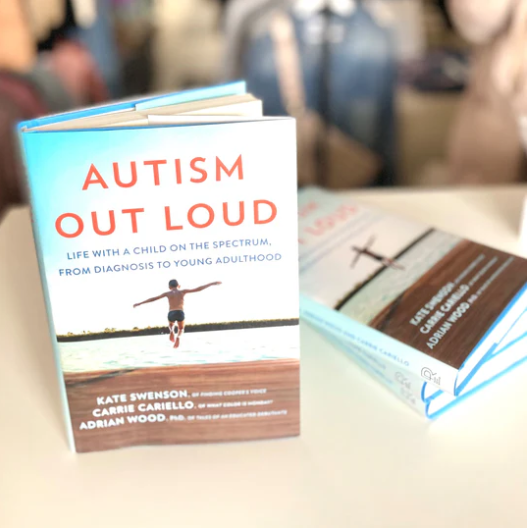The Normalcy within Cyclical Grieving
Happy July families!
I hope you're enjoying the summer months surrounded by friends and family.
This June, I had the opportunity to read one of the most insightful parenting books I've come across—especially for families navigating life with autism. It inspired me to open up about something many of us experience but rarely talk about: the quiet, often unspoken grief that can accompany parenting a child with autism or other neurodivergent challenges.
In this post, I’ll explore this complex emotional landscape through research-backed insights, supportive resources, and reflections from the book that deeply resonated with me.
Most of us are familiar with the five stages of grief—denial, anger, bargaining, depression, and acceptance—which often follow a significant loss. These emotions are typically understood as occurring in a somewhat linear progression. However, for parents of children with autism or other developmental challenges, grief can take on a different form—what’s known as cyclical grief.
The term cyclical refers to the recurring nature of certain emotions from the initial grieving process. These can include, but aren’t limited to: anger, anxiety, denial, depression, disbelief, frustration, guilt, helplessness, loneliness, numbness, sadness, and shock. Rather than experiencing grief only once—often at the time of diagnosis—many parents find that these emotions resurface at various points throughout their child’s life.
Cyclical grief can be triggered by events that highlight developmental differences, such as a younger sibling surpassing milestones that the child with special needs hasn’t yet reached, or witnessing a neurotypical peer get their driver’s license, get a job, or get married. There is no predictable timetable for how—or how often—a parent may move through these emotions. The experience is shaped by a complex mix of factors unique to each child, parent, and family dynamic.
"The concept of cyclical grief offers a valuable framework for understanding how families gradually come to embrace their child’s unique differences, accept the realities of autism, and adjust to a 'new normal.’”
Dr. Willar
For any parent experiencing cyclical grief, it’s important to lean into those emotions and consider what kind of support might be helpful. That journey looks different for everyone, but it may include speaking with a licensed psychologist, joining a parent support group, or simply being open and honest with trusted friends or family. You are not alone in this.
Supporting one another through the ups and downs of parenting—especially when navigating neurodiversity—is vital. And above all, remember this: your child has purpose, and is deeply loved by the Lord. And so are you.
The book Autism Out Loud has been an exceptionally beautiful and moving read. Written by three mothers of children with autism, it offers deeply personal and unfiltered stories that shed light on the challenges and triumphs of diagnosis, caregiving, and young adulthood. It’s a book that feels both validating and encouraging.
In my clinical work, I’m often asked for book recommendations by parents. While there are many helpful “how-to” guides out there, they often lack the emotional depth, support, and human connection so many families are seeking. Autism Out Loud stands apart. It speaks to all parents of neurodiverse children—regardless of their child’s age or level of functioning.
This book creates space for reflection, shared understanding, and hope. Whether you’re early in your journey or well along the path, I encourage you to take a moment to acknowledge your own grief, seek support if needed, and consider picking up this powerful read. It just might offer the connection and encouragement you didn’t know you needed.
Warmly,
Dr. Willar



